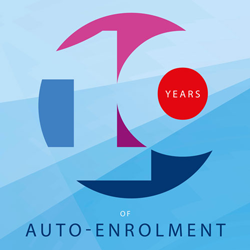John Greenwood
Corporate Adviser editor
john.greenwood @definitearticlemedia.com
Above
and
Beyond
Auto-enrolment could have failed in so many ways – instead it has delivered far more than it was originally expected to
Auto-enrolment has been a success on so many levels. It hasn’t just laid down the foundations for the retirement fortunes of millions of UK workers. It has also raised standards across the UK retirement system and beyond, impacting asset management transparency and boosting public engagement in responsible investment.
Few policies over the last generation have touched quite so many people in such a positive way.
Millions have been set on the road to at least a measure of financial independence in retirement.
Yes, those auto-enrolled for the first time while in their fifties or sixties will see marginal benefits, and adequacy will remain an issue for savers younger than that. And the self-employed and those below the AE threshold will continue to miss out altogether.
But the success of auto-enrolment in engaging millions with pensions, for many their very first financial services product, cannot be overstated.
It’s easy to forget where we have come from – a world where a majority of private sector workers were not even offered pension contributions by their employer.
The reverberations of auto-enrolment are felt far beyond the accounts of the 20 million people now saving. The policy has transformed the wider pensions market with low charges, real transparency around asset management fees, an end to commissions, the death of short service refunds and increased value for money requirements. Not to mention a new state pension and reduced means testing
It has also created fertile ground for responsible investment to thrive.
Credit for the success goes to many people – at regulators, providers, payroll companies, HR professionals, advisers and consultants, policymakers and trade bodies. And of course Lord Turner and his team deserve particular credit for the clarity of their work– a model of policymaking and a great advert for a citizen’s assembly approach to building institutions that the public want and can believe in.
At its heart, much of the pressure for these improvements came from the fact that the government was on the hook. How could it put people’s money into products without a signature if they had high and opaque charges, invested in unethical and unsustainable investments and were of poor value? Regulatin has improved, and few working within commercial providers would say that Nest, the state-funded competitor, hasn’t moved the debate and taken the market with it in several areas.
Auto-enrolment is not perfect – there is still much to be done. But it deserves a very strong report card for its performance so far.
